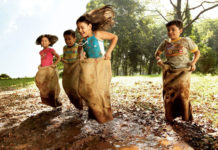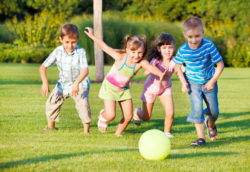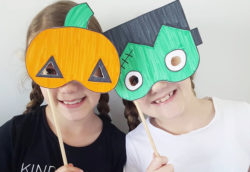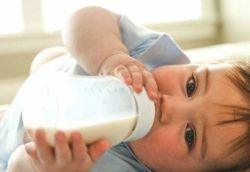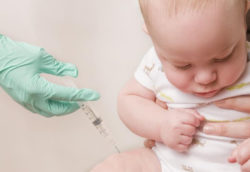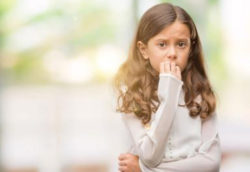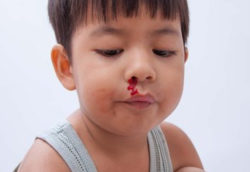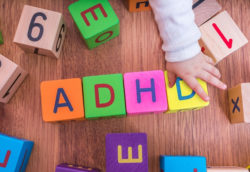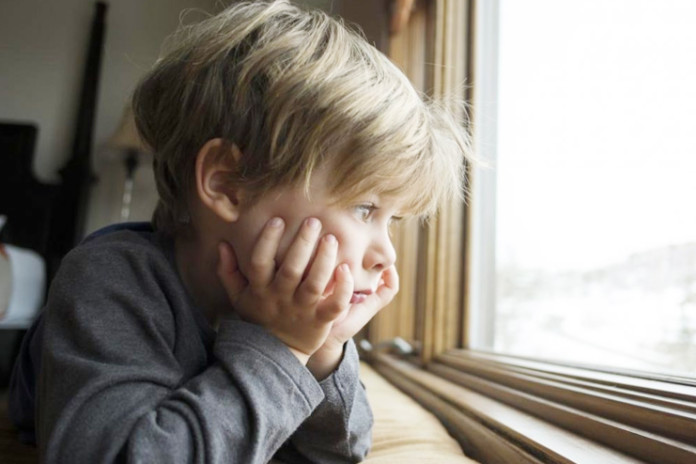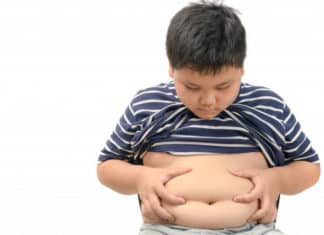What is childhood stress? How common is stress in the early stages of childhood? What leads to stress in kids? Does stress have effects on child development? Are you aware of all the answers to these questions? If not, we have all the answers to all your doubts.
Childhood stress is present in every setting of life. It is all about what the child requires to adopt or change. Stress is mostly related to negative impacts on the kid including illness or even death in the family.
By the end of this article, you will come to know about what stress is all about and the effects of stress on child development.
What Is Stress?
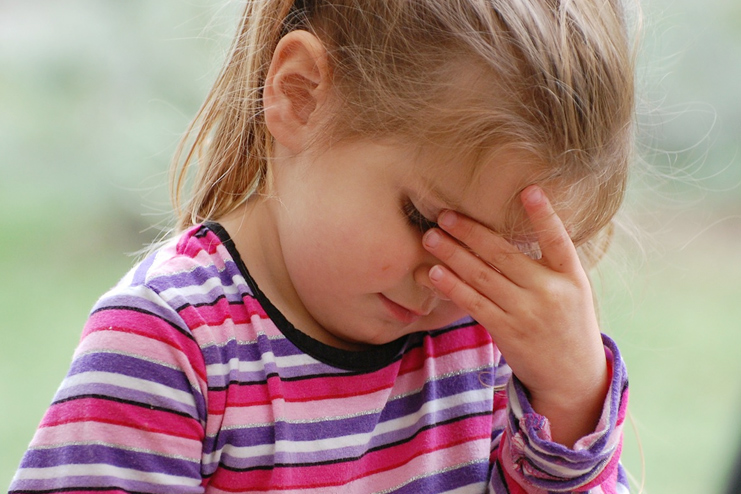
As I mentioned above, childhood stress is present in every setting of life. It is all about what the child requires to adopt or change. Stress is mostly related to negative impacts on the kid including illness or even death in the family.
Mostly at some point in their life, children express childhood stress (R). Some times, stress can be positive and lead to positive outcomes whereas sometimes it can become chronic.
The excessive stress can affect the way a child thinks, acts and feels. Many stressful events that can lead to stress in a child include-
- Worrying about schoolwork or grades
- Juggling responsibilities, such as school and work or sports
- Problems with friends, bullying, or peer pressure
- Changing schools, moving, or dealing with housing problems or homelessness
- Having negative thoughts about themselves
- Going through body changes, in both boys and girls
- Seeing parents go through a divorce or separation
- Money problems in the family
- Living in an unsafe home or neighborhood
Types Of Childhood Stress:
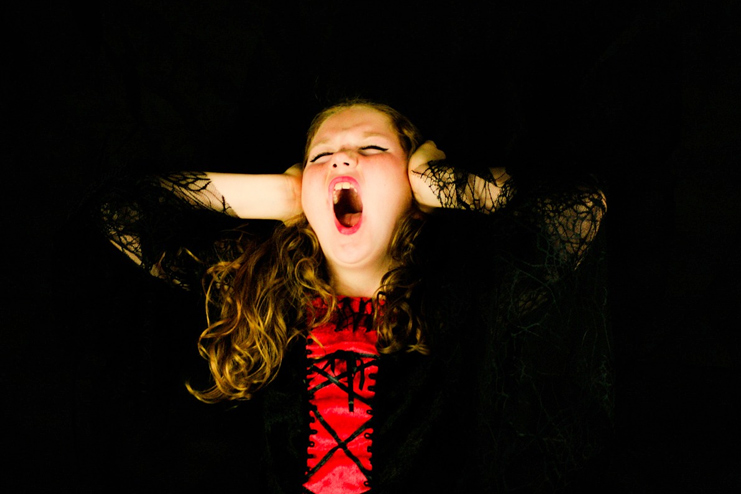
There are two categories of stress in early childhood, such as-
1. Good Stress
Good stress is known as positive stress. Positive stress is nothing but it helps the children to handle obstacles and overcome them in a better way.
For example, students and players perform better when they experience some kind of stress from their parents and coaches, as that motivates them to work harder and perform better.
2. Bad Stress
Bad stress is otherwise known as negative stress. This is overwhelming stress that can surmount the child’s ability to cope with certain negative events in their lives.
It includes serious events such as physical and emotional violence, inability to perform as expected, illness, neglectful parents, among others, can harm the child irreparably, by affecting mental development, raising blood pressure, causing sleeplessness, nightmares, lethargy, depression, and anxiety (R) so on.
Causes of Stress In Children:
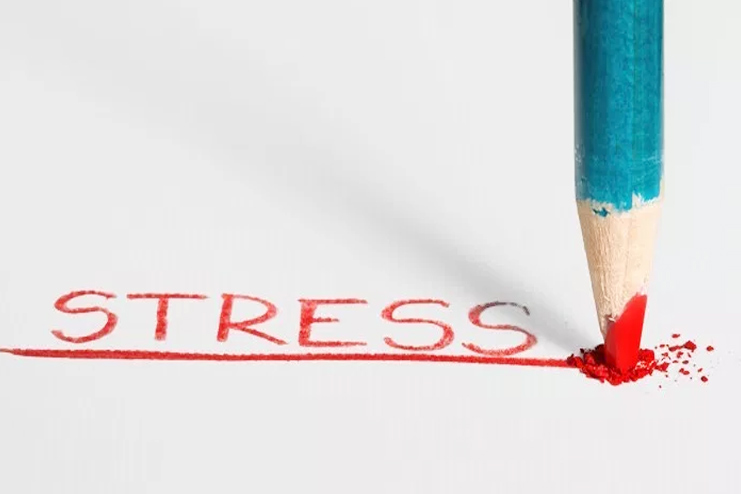
Some of the common causes of childhood stress are as follows-
1. Big Changes In Family:
It is believed to be a very important cause or factor that leads to stress. This is also very common in today’s days that induce childhood stress. This includes divorce, a death in the family, moving, or the birth of a new sibling, etc.
This life-changing event brings a lot of sense of insecurity, leading to confusion and anxiety. It shakes the child’s emotions from minor to major.
2. Parental Insatiability:
Another possible cause is the parental instability such as money, job concerns, family turmoil, and parental agitation which can lead to an overwhelming sense of powerlessness in children. Normally the children experience stress when they feel that they want to help their parents but can’t do so.
3. Overly-Packed Schedules;
With the busy schedule nowadays, children undergo a stressful situation. Constantly running from one activity to another can cause a great deal of stress for children. They need time to relax, but they are not able to do so.
4. Academic Pressure:
Academic pressure or stress is common in children who are afraid of making mistakes or who are afraid of not being good at studies or other academic parameters. Academic pressure is one of the major causes of childhood stress as they might feel stress from trying to fit in a friend circle.
5. Environment or Media:
It is very common for children to get anxious about the things they see on TV, such as news of disasters, terrorist attacks and so on. Very young children may even react to extreme violence, gore and horror in films, which can inflict an irrational fear of strange people, darkness or scary monsters. Having online lives could lead to cyberbullying by peers or strangers, which can cause severe emotional distress.
6. Popularity:
For younger grade-schoolers, separation anxiety may be a typical downside. As they develop, wish to suit in with alternative kids and be like them, and the pressure to fit in and be popular can be agonizing.
Cliques and the feeling of being excluded usually becomes an issue once kids enter grade school.
7. Bullying:
Bullying is a serious problem for many children. It may be refined, or obvious, and may lead to physical harm. Children UN agency square measure browbeaten typically feel embarrassed concerning being targeted, and that they might hide the bullying from oldsters or academics for worry of drawing attention to their perceived weaknesses.
Changes To The Body:
The body changes in the following ways during stress:
- blood pressure and pulse rate rise
- breathing is faster
- the digestive system slows down
- immune activity decreases
- the muscles become tense
- a heightened state of alertness prevents sleep
Signs of Childhood Stress:
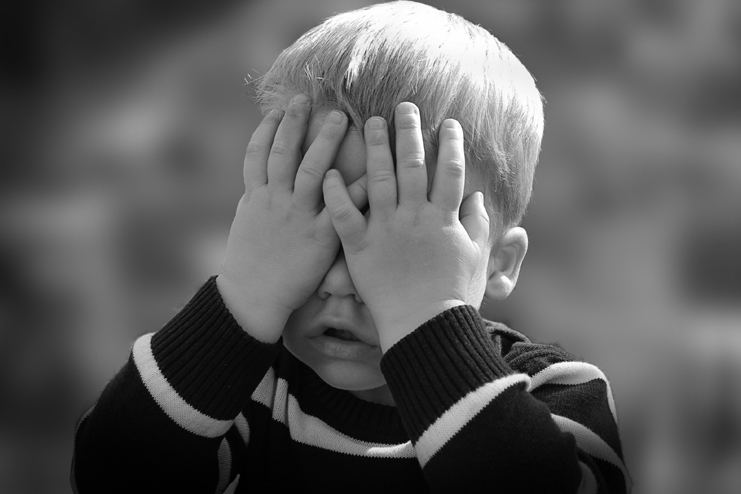
The sign (R) and symptoms of childhood stress include-
The Physical Symptoms of Stress Include:
- sweating
- pain in the back or chest
- cramps or muscle spasms
- Erectile dysfunction and loss of libido
- fainting
- headache
- heart disease
- Loss of appetite
- high blood pressure
- lower immunity against diseases
- muscular aches
- nervous twitches
- pins and needles
- sleeping difficulties
- stomach upset
- Nightmares
- New or recurrent bed wetting
The emotional symptoms include-
- Anger
- Anxiety
- burnout
- concentration issues
- Depression
- fatigue
- a feeling of insecurity
- forgetfulness
- irritability
- nail biting
- restlessness
- sadness
The Behavioral Symptoms Include-
- food cravings and eating too much or too little
- sudden angry outbursts
- drug and alcohol abuse
- higher tobacco consumption
- social withdrawal
- frequent crying
- relationship problems
Effects Of Stress On Child Development:

The incidence of fat, polygenic disease, and heart issues, cancer, and different diseases goes up once a toddler lives with persistent chronic stress.
Additionally, their probabilities of depression, misuse and dependence, smoking, young maternity and/or sexually transmitted unwellness, suicide greatly increase.
Additionally, there will have a tendency to be violent or to become a victim of violence. Studies done by the Centers for unwellness management and bar (CDC) have shown that a toddler is subjected to frequent or continual stress from factors like neglect, abuse, dysfunctional families or domestic abuse.
They lack adequate support from adults, their brain architecture is actually altered and their organ systems become weakened. As a result, these youngsters risk better health and social issues.
Of the 17,000 folks that took half within the CDC study, two-thirds had an Adverse Childhood Experiences (ACE) score of 1 or higher. 87% of these folks had over one ACE. By mensuration and grading, 10 kinds of trauma starting from childhood regulatory is because of neglect or bullying and even divorce.
The researchers were able to assess the chronic disease risk for the study’s mostly white, middle-class participants. Their results show that the matter of harmful stress isn’t restricted to kids. Kids from all of the different angle can come across ACE.
How To Reduce Childhood Stress?
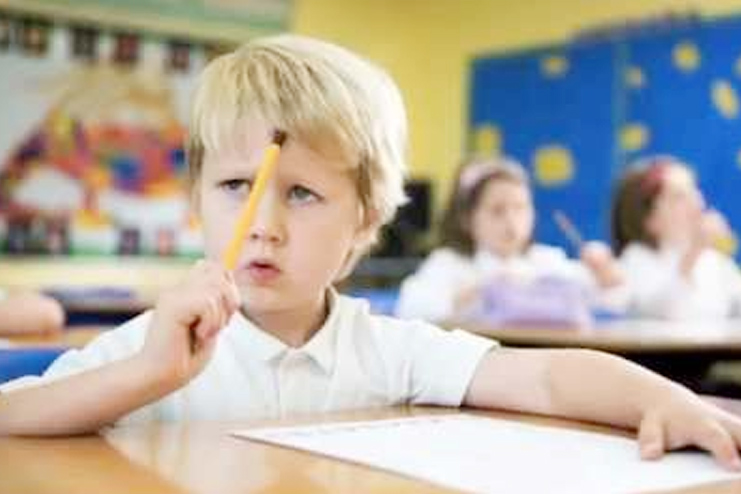
Here are a few tips that can help to reduce the stress in childhood-
- Provide a safe, secure, and dependable home for your kids.
- Family routines can be comforting enough to reduce stress. Having a family dinner or movie night can help relieve stress.
- Try to be a role model. The child looks up to you as a model for his healthy behavior and action. So do your best to keep your own stress under control and manage it in healthy ways.
- Be careful about which television programs, books, and games that young children watch, read, and play. The violent shows or games can produce fear and anxiety. So, try to block those things.
- Keep your child informed of anticipated changes such as in jobs or moving.
- Spend a good amount of calm, relaxed time with your children once you are home after work.
- Learn to listen. Listen to your child without being critical or trying to solve the problem right away. Instead, work with your child to help them understand and solve what is upsetting to them.
- Build your child’s feelings of self-worth. Use encouragement and affection. Use rewards, not punishment. Try to involve your child in activities where they can succeed.
- Allow the child opportunities to make choices and have some control in their life. The more your child feels they have control over a situation, the better their response to stress will be.
- Encourage physical activity in the child.
- Recognize signs of unresolved stress in your child.
- Seek help or advice from a health care provider, counselor, or therapist when signs of stress do not decrease or disappear.
Management:
There are certain ways where you can manage stress. They are as follows-
1. Exercise:
A lot of studies have shown that exercise can benefit a child’s mental and physical state. So small kind of exercise or physical activity will keep your child away from stress.
2. Reducing the intake of alcohol, drugs, and caffeine:
These substances don’t help to prevent stress, but makes it worse and lead to other bad habits. They should be removed out from the child’s knowledge.
3. Nutrition:
The studies have found that a healthy, balanced diet with plenty of fruit and vegetables helps the immune system at times of stress. An improper diet will lead to multiple health issues and additional stress. So, the children are advised to eat plenty of healthy nutrition food.
4. Prioritizing:
The children, as well as parents, should spend a little time organizing to-do lists to see what is the most important or what is the priority in their lives. Then, focus on what the kids have completed or accomplished for the day rather than what they are yet to finish.
5. Time:
Time is everything. Set aside some time each day for your kids and use it to organize your and your kid’s life. Just relax and pursue your own interests within that given frame of the time.
6. Breathing and Relaxation:
Meditation, massage, and yoga can help. Breathing and relaxation techniques can slow down the system and help the kids to relax. Breathing is also part of meditation and that helps your child relax.
7. Talking:
Make sure your kids talk to family, friends, work peers, and parents about their thoughts and worries. You should always have healthy and wealthy communication. The kids may be comforted to find that you are “not the only one.” They may even find there is an easy solution that you had not thought of.
8. Acknowledging the signs:
A child can be anxious about the problem that causes the stress that they do not notice the effects on their body. Noticing symptoms is the first step to taking action. Seek help or advice from a health care provider, counselor, or therapist when signs of stress do not decrease or disappear.
Stress Management Techniques
Stress management can help to:
- Remove or change the source of stress
- Alter the way you view a stressful event
- Lower the impact that stress might have on your body
- Learn alternative ways of coping
Mostly at some point in their life, children express childhood stress. Some times, stress can be positive and lead to positive outcomes whereas sometimes it can become chronic. The excessive stress can affect the way a child thinks, acts and feels. So it is wise to take all the necessary steps in order to control and manage stress. I hope this article has given you overall insightful information about childhood stress and the ways to manage it.




